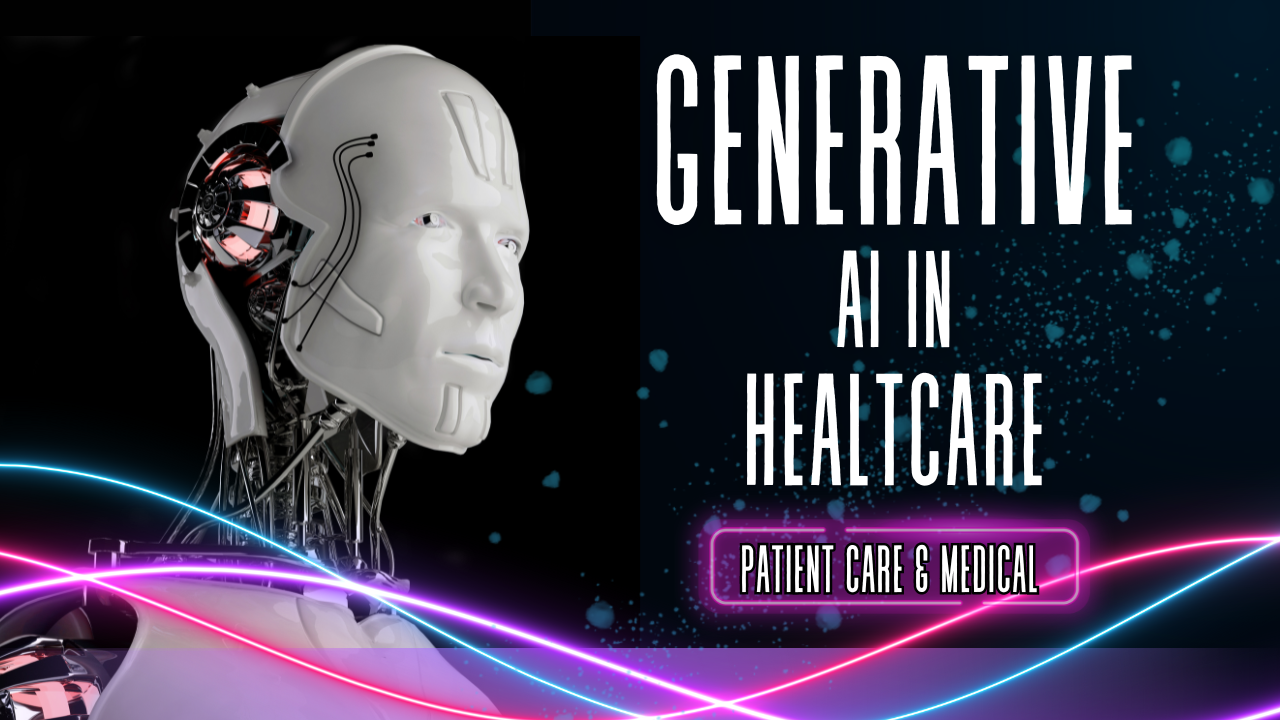Introduction
Generative AI, a specific part of artificial intelligence that makes new data from available datasets, is advancing across different fields. Its capacity to create lifelike images, texts, and even deep models brings many chances. In healthcare generative AI is ready to cause a revolution in patient care and medical research. This blog discusses the effects and potential of generative AI in transforming healthcare practices.
Section 1: Knowing Generative AI
Generative AI uses neural networks, machine learning, and deep learning to make new data. Unlike traditional AI, which focuses on analysis and prediction generative AI can create new images, text, or simulations. Examples in other industries include AI-generated artwork realistic video game graphics, and automated content making showing its versatility and strength.
Section 2: Applications of Generative AI in Healthcare
Drug Discovery and Development
Generative AI speeds up drug discovery by creating possible drug compounds. AI platforms like Insilico Medicine and Atomwise have identified promising drug candidates lowering the time and expense in usual drug development methods.
Personalized Medicine
Generative AI customizes treatments for individual patients by examining genetic and lifestyle data. AI-driven models forecast patient reactions to treatments, to make personalized therapy plans. Firms such as Tempus and IBM Watson Health are pioneers in creating AI systems for personalized medicine.
Virtual Health Assistants
AI-driven chatbots and virtual assistants give medical advice and help to patients. These virtual assistants are available at all times and help patients manage their health, answer their questions, and set up appointments. Examples are Babylon Health and AdaHealth which offer healthcare help across the world.
Section 3: Benefits of Generative AI in Healthcare
Enhanced Efficiency
Generative AI lessens the workload for healthcare workers by doing routine tasks and helping with decisions. This leads to big savings in costs and better use of resources allowing healthcare providers to pay more attention to important patient care.
Improved Patient Outjustocytes
With quicker and more precise diagnoses and treatments tailored to the individual patient health outcomes get better . Generative AI allows for early disease detection and personalized treatment strategies enhancing total patient care.
Innovations in Research
Generative AI helps in the quick study of large datasets to make new medical findings. By finding patterns and connections in data, AI speeds up research in genomics, epidemiology, and additional medical areas furthering innovations and boosting public health.
Section 4: Challenges and Ethical Considerations
Data Privacy and Security
The use of personal health details in AI raises worries about privacy and protection. It is key to maintain patient secrecy and trust by putting in strong measures to protect data, like making data secret and changing it so it cannot be traced back.
Bias and Fairness
AI systems might develop biased views from training data, which might lead to unfair treatment in patient care. It is vital to ensure fairness in AI-driven health solutions by using varied and accurate data and by watching and tweaking AI systems.
Regulatory and Legal Issues
Putting AI to work in healthcare meets regulatory issues including having to follow health standards and guides. It is crucial to have clear rules and standards to manage the use of AI ensuring it is used and in health settings.
Conclusion
Generative AI holds the potential to create a revolution in healthcare by increasing efficiency bettering patient results, and introducing new research breakthroughs. Tackling challenges and moral issues is necessary, though the outlook for AI-driven healthcare is optimistic. It is vital to remain up to date and involved with progressions in AI and healthcare to utilize its capabilities.

